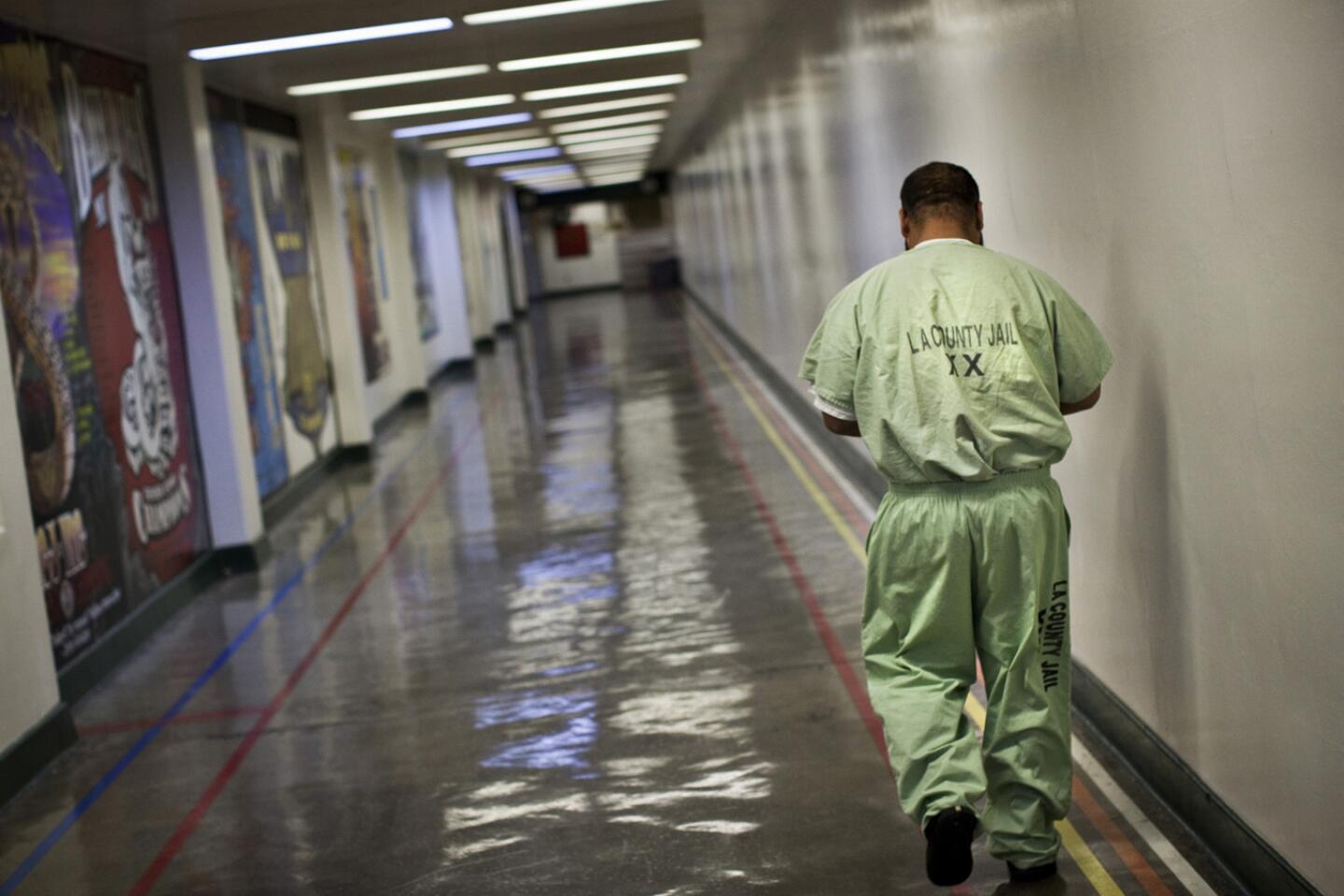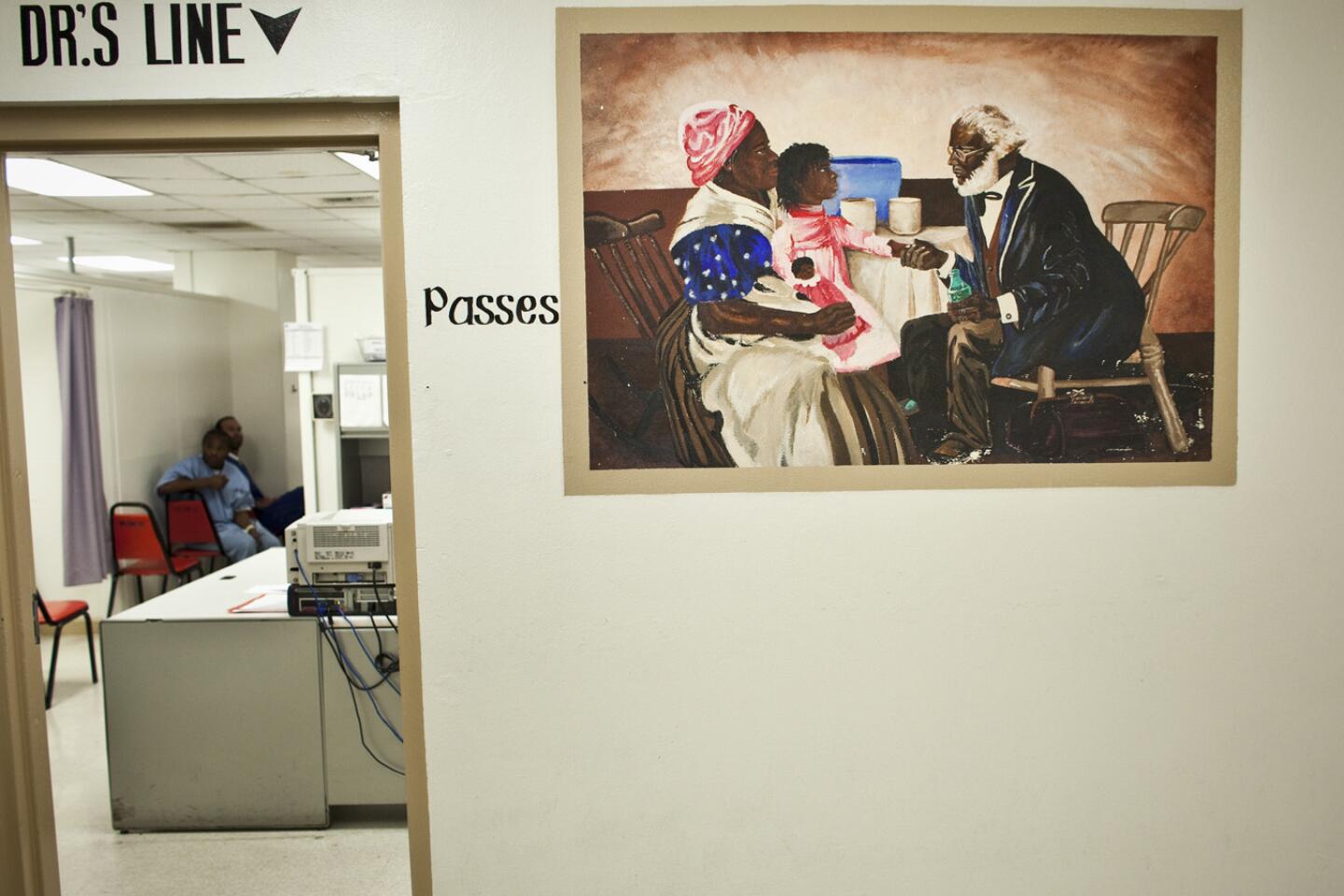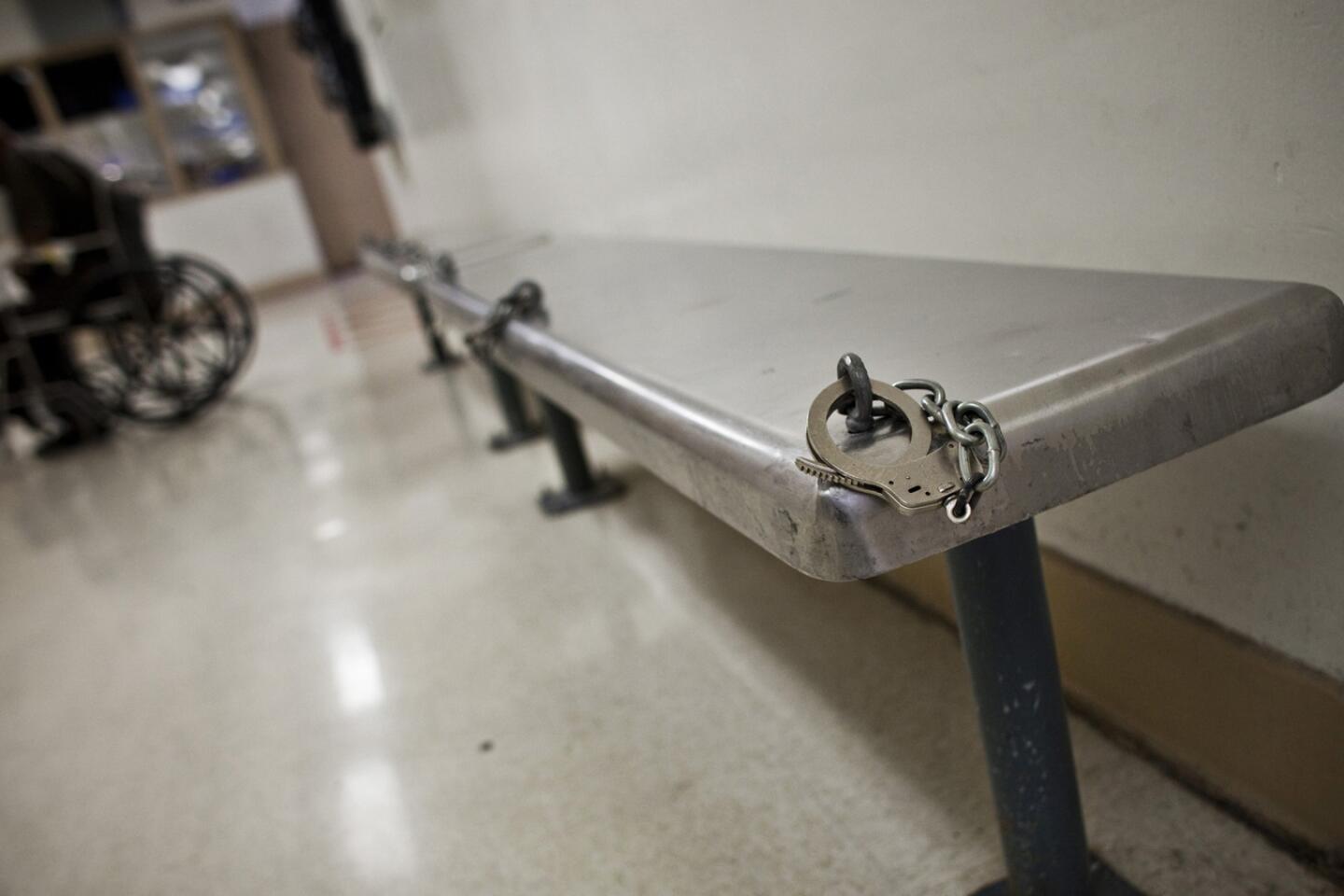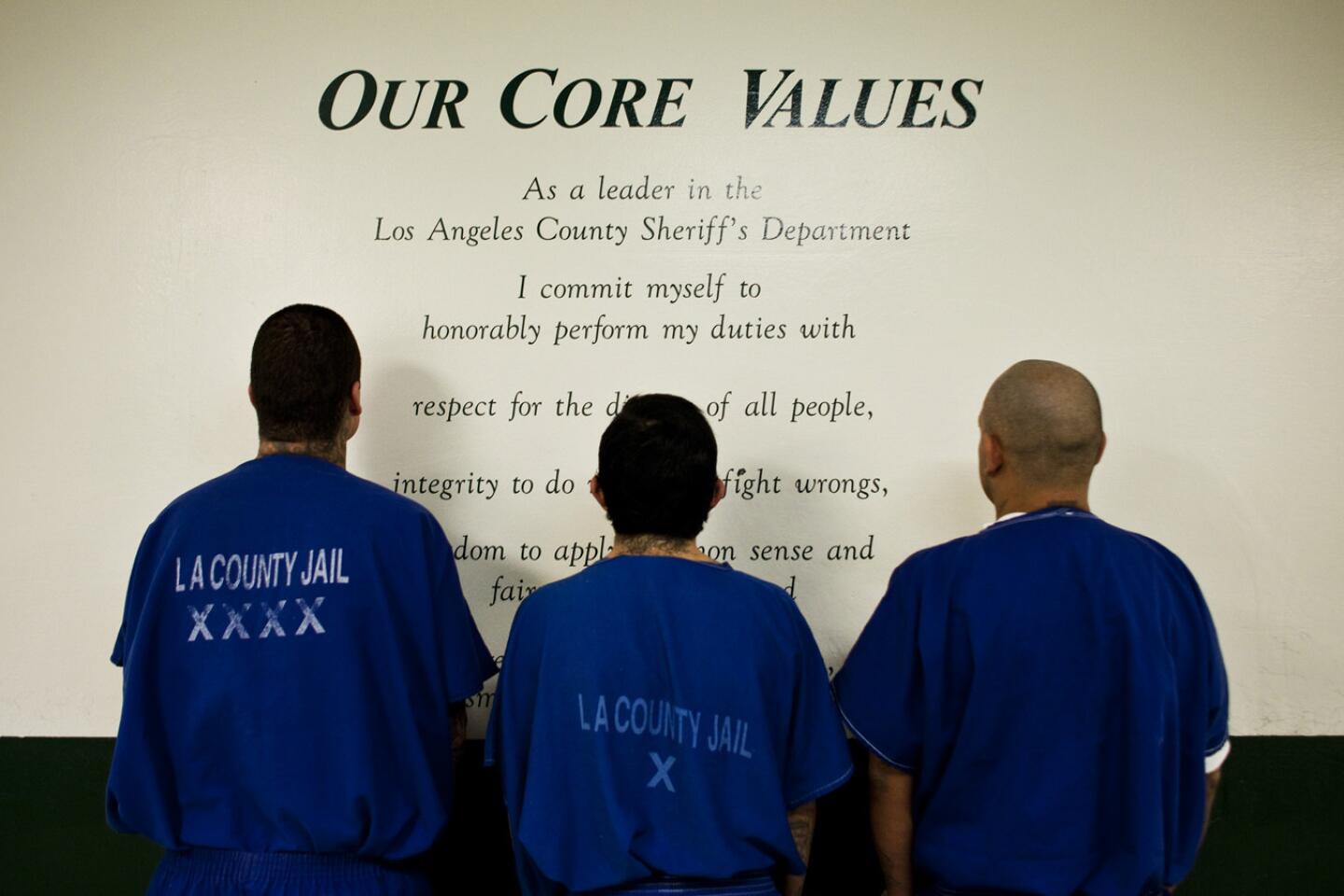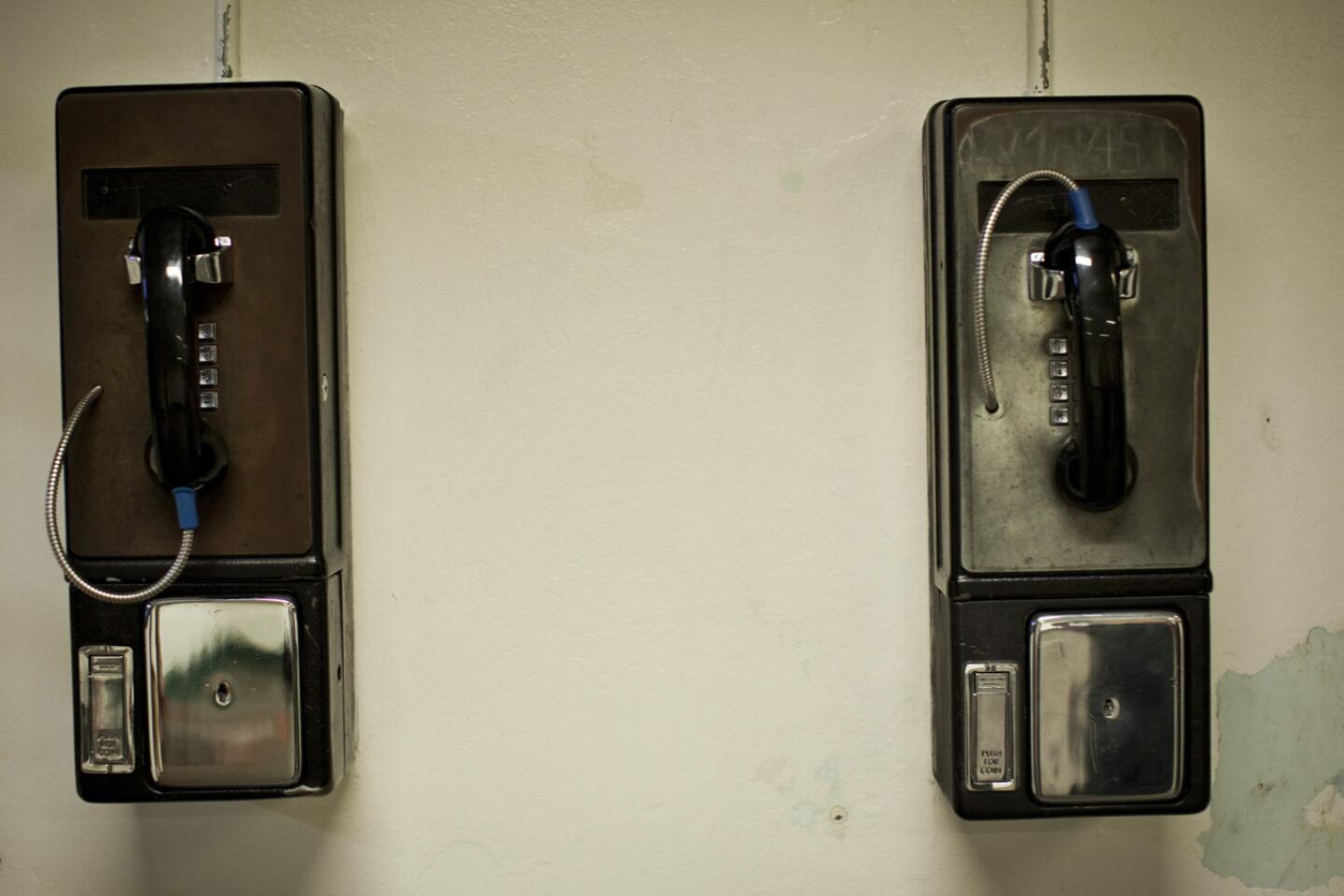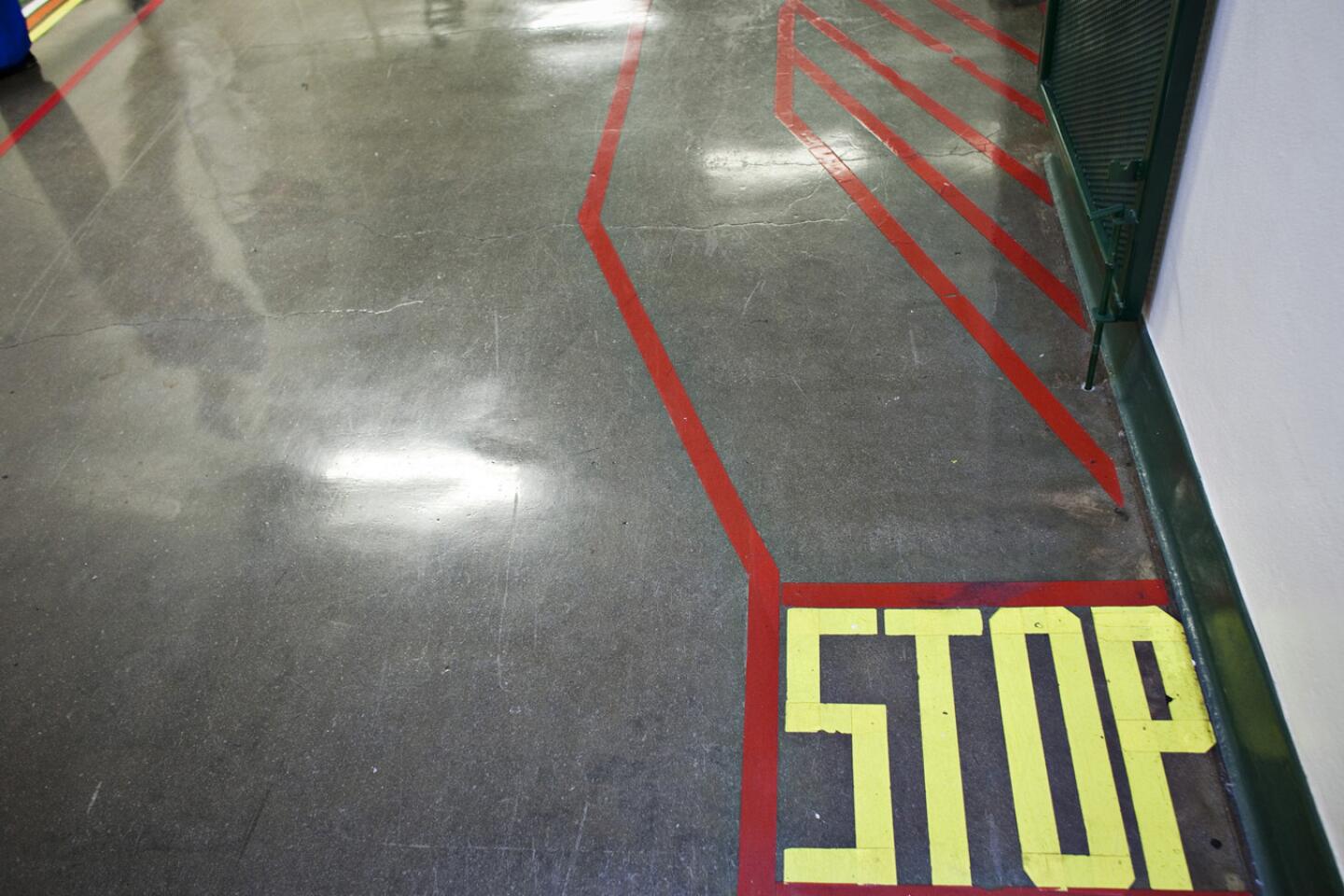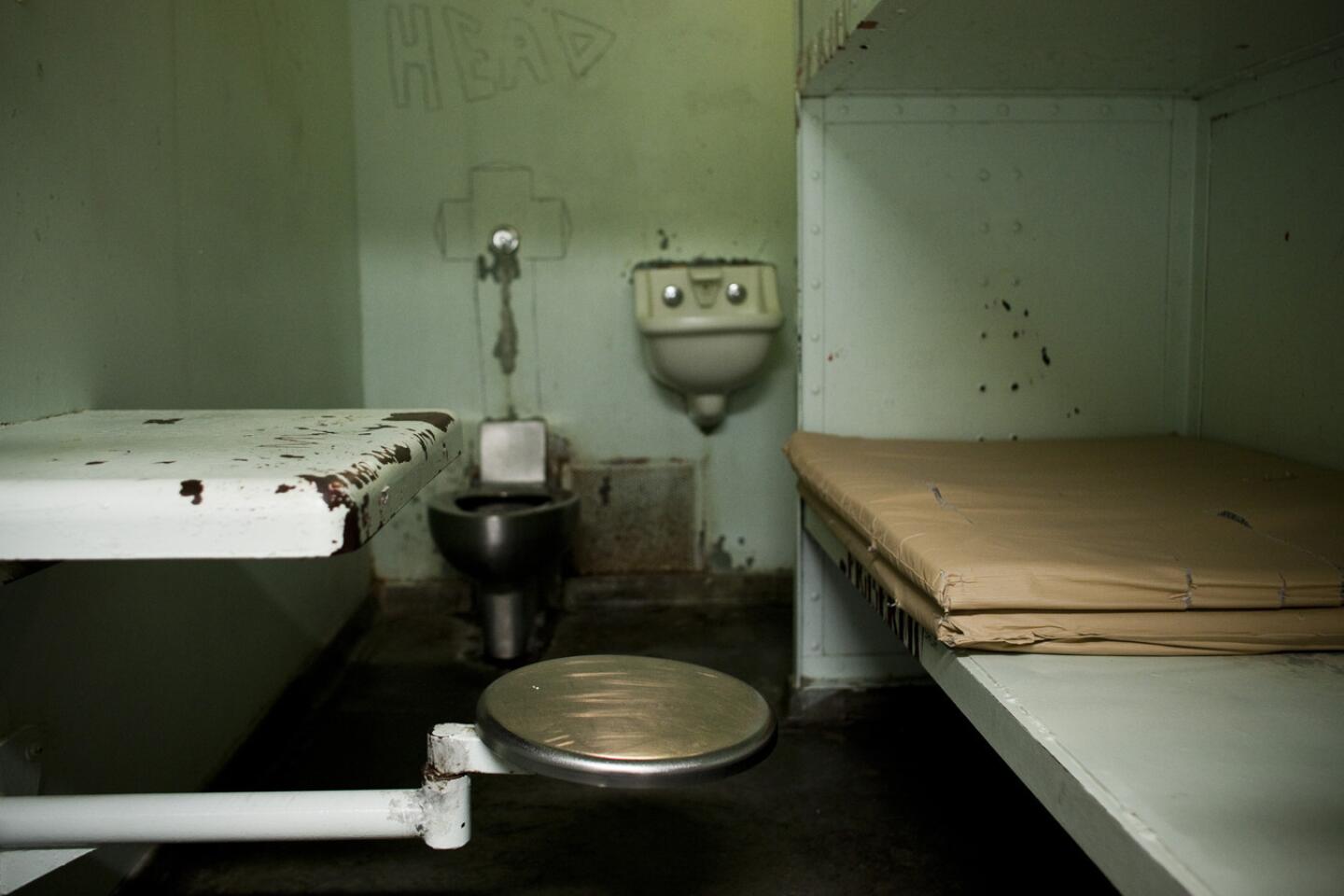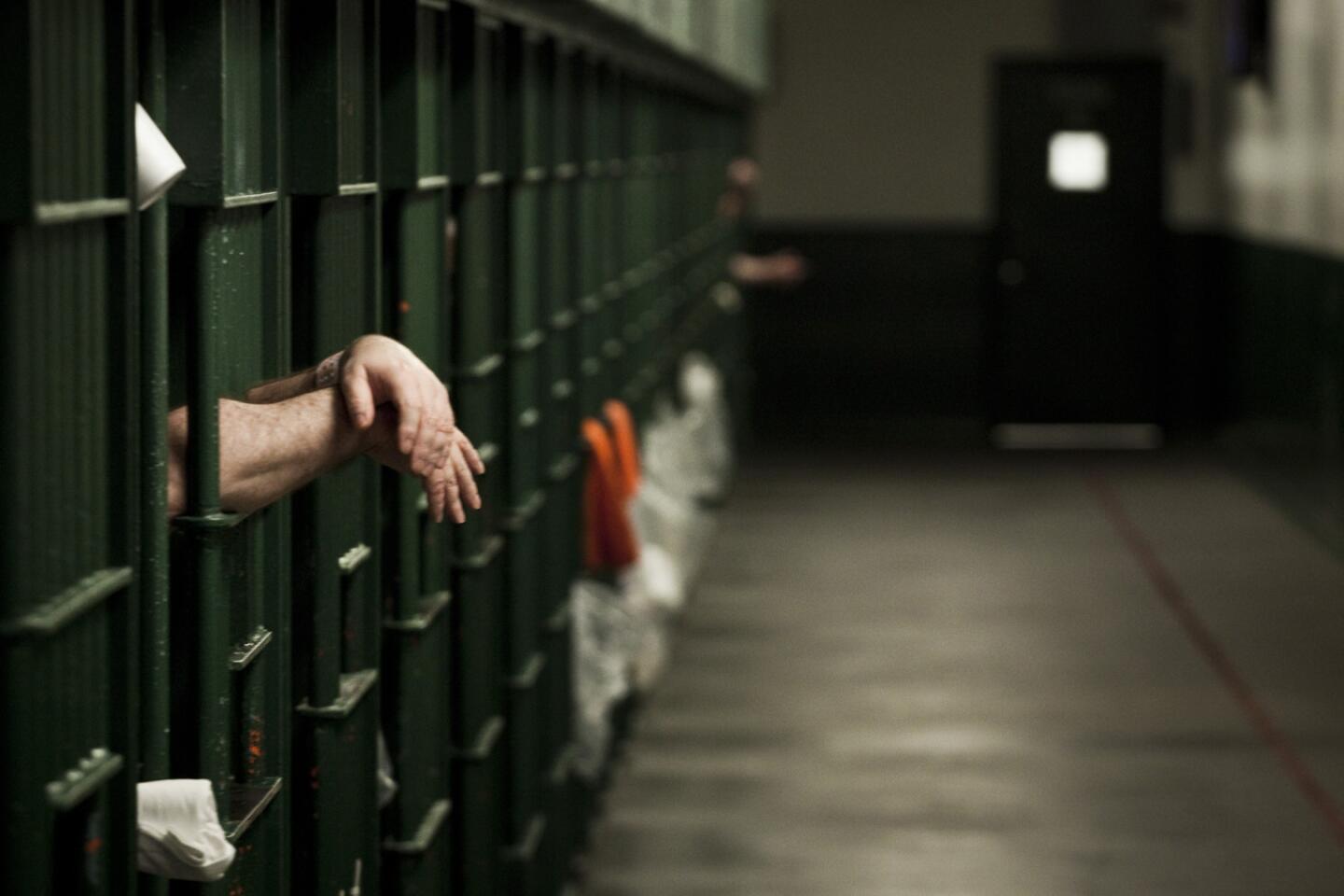Jail volunteers accuse deputies of abusing L.A. County prisoners
- Share via
Los Angeles County sheriff’s deputies brutalized inmates on multiple occasions and their supervisors failed to take complaints of the abuse seriously, according to sworn declarations from two chaplains and a Hollywood producer who volunteered in the jails.
Two of the volunteers said they heard deputies yell “stop fighting” as deputies pummeled inmates who appeared to be doing nothing to fight back.
The allegations come on the heels of Los Angeles Times stories detailing FBI probes into deputy misconduct in the jails. The declarations are expected to be filed in court Wednesday as part of a report compiled by the American Civil Liberties Union, which is a court-appointed monitor of jailhouse conditions.
It’s not uncommon for inmates to make allegations of abuse, but these sworn statements are noteworthy because all three are from independent civilians in the jails who say they came forward because they were troubled by what they saw. Two have included their names. The third, a chaplain whose identity was learned by The Times, opted to have his declaration filed anonymously at the last minute for fear of reprisal.
Sheriff Lee Baca did not return calls seeking comment.
In one declaration, Chaplain Paulino Juarez said he was ministering to an inmate at a cell inside Men’s Central Jail on Feb. 11, 2009, when he heard thumps and gasps. He went toward the sounds and saw three deputies pounding an inmate pressed against the wall. Juarez said he believed the inmate was handcuffed because he never raised his hands to protect his face from the deputies’ fists, instead shouting: “I am doing nothing wrong; please stop.”
The inmate, Juarez said, collapsed face first. His “body lay limp and merely absorbed their blows.” The deputies continued kicking for a minute, the chaplain said.
One deputy eventually turned and saw Juarez. “When we made eye contact, the deputy … had a nervous and surprised look on his face. Then he began making signs to the others with his hands, motioning them to stop the beating,” according to the declaration.
Later, the chaplain noticed a pool of blood, 2 feet around. He recalled one sheriff’s official yelling: “Check if he has HIV.”
The chaplain filed a report at the time — reviewed this week by The Times — and was interviewed by Sheriff’s Department investigators. In the weeks after he filed his complaint, he said passing deputies would call him “rat” and other insults. After hearing nothing for two years, Juarez reached out to the department and was granted a meeting with Baca.
The sheriff, Juarez recalled, said he had never heard about the incident.
“This happened two years ago and I’m only finding out about it now?” Baca asked his executive staff, according to the chaplain. Baca looked over the file, about 10 pages, and told the chaplain his investigators had determined the inmate was schizophrenic. Juarez said Baca told him that deputies had to punch the inmate a couple of times to get him into the cell. “Punches are allowed, but kicks are not allowed in my department,” Baca said, according to Juarez.
According to the chaplain, Baca said his investigators determined the bruises were the result of being run over by a car before the inmate was incarcerated, not from a beating.
Michael Gennaco, who heads the Office of Independent Review, said in an interview with The Times on Tuesday that the investigation file was inconsistent with the chaplain’s account. The inmate’s medical records showed he had only a cut on his forehead, burning in his eyes and redness to his left elbow — injuries that don’t match up with an extended beating.
Gennaco also said that the inmate told investigators that he was resisting and that he deserved the amount of force deputies used.
“Some of the allegations just simply don’t match up with the other evidence,” Gennaco said. “We’ve got to rely on evidence rather than mere allegations.”
Scott Budnick, a producer for “The Hangover” movies and a former writing tutor at Men’s Central Jail, also gave a sworn declaration about abuse he witnessed.
In 2009, he said he opened the door to the jailhouse chow hall, empty but for three deputies kicking and punching an inmate who fell to the floor. The deputies, he said, repeatedly yelled “stop resisting” even though the inmate wasn’t.
On another occasion, in 2008, he said he was standing outside his class, when he saw a deputy stop an inmate for a strip search.
“I then saw the … deputy grab the inmate’s head and smash his head into the wall, hard. It was so hard that I could hear an audible crack,” Budnick stated.
The chaplain who opted to be anonymous described an incident on Feb. 9. He said he was on the third floor of Men’s Central Jail filling his cart with Bibles and Christian literature when he heard deputies running and keys jangling. He then saw a group of deputies kicking an inmate face down on the ground with his hands behind his back. One deputy, the chaplain said, held the inmate’s feet and legs, another had a knee on the inmate’s neck, while the other deputies kicked his torso, the chaplain alleged.
“Chaplain, go inside!” he said one deputy yelled.
“I didn’t go inside because I had heard too many inmates tell me about beatings that the deputies had inflicted on them and I wanted to observe what was happening with my own eyes,” the chaplain said.
The allegations come as new details emerge about a flurry of federal scrutiny into the jails. The FBI has confirmed that it is looking into at least two inmate allegations of abuse. The bureau is also investigating a January incident in which an ACLU monitor said she witnessed two deputies beat an unconscious inmate for two minutes. According to sources, federal agents recently paid off a deputy in an undercover sting to smuggle a cellphone to an inmate who was secretly serving as an FBI informant.
Along with the jails, the feds are investigating a sheriff’s captain suspected of being overheard on a wiretap of an alleged Compton drug ring. The U.S. Department of Justice’s civil rights division also recently announced a wide-scale “pattern and practice” investigation into allegations that deputies in the Antelope Valley discriminated against minority residents who receive government housing assistance.
More to Read
Sign up for Essential California
The most important California stories and recommendations in your inbox every morning.
You may occasionally receive promotional content from the Los Angeles Times.
